Josie Gamble is the founder and director of Christian Creative Network (CCN) and Christian Creative Directory (CCD) and in 2022 made The Telegraph and NatWest Top 100 Female Entrepreneur list. Tola-Doll Fisher sat down with her to discuss the creative gap between the UK Church and the world, and how Josie plans to fix it
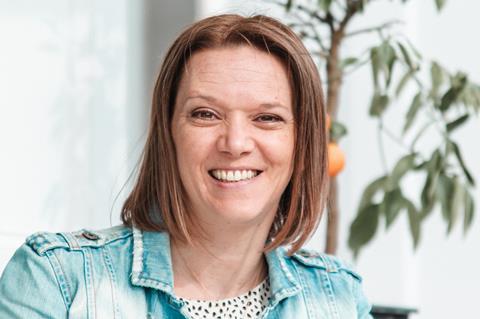
JG: I’ve run my own design business for the last 15 years and I predominantly do branding, graphic and web design. I don’t market myself as a Christian designer; I serve the whole marketplace. But a lot of Christian creatives feel isolated.
They’re either freelance, work from home, or they’re the only Christian in their workplace. By connecting with like-minded local Christian creatives, they’re able to be encouraged and supported. CCN launched in 2017 and the idea was to follow that with the directory, and then recognition awards. We launched the directory in 2021, which connects Christian creatives who have businesses with churches and charities who need them.
Last year someone posted an advert for Christian children’s writers; they were so encouraged by the response that they followed that up with a post looking for Christian children’s illustrators. Then, in 2022, they launched their resource, which is a new children’s book teaching children about poverty. That’s exactly what the directory is for.
TDF: In my experience, there is sadly a large creative gap when it comes to mainstream vs Christian-specific creativity, with the Church often proffering content of a lesser quality. Why do you think this is?
JG: There was a time the Church was leading the way in creativity. We had stained glass, fine art, sculpture and intricate architecture. But a lot of that was lost in the Reformation in the 16th Century. It felt like maybe they threw the baby out with the bathwater, and the value of creativity was lost.
Now we find ourselves at this poignant moment in time where it’s blatantly obvious that we are playing catch up with the world. There are pockets of the body of Christ that do creativity well but, on the whole, the creative culture in the UK Church is very weak, very poor and very undervalued.
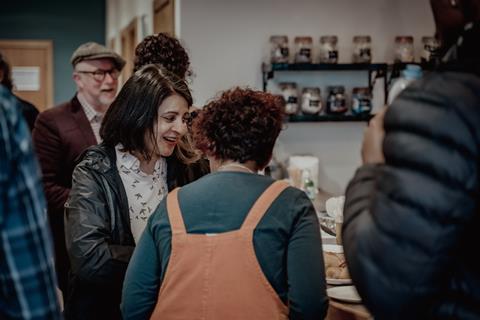
TDF: I’m really glad to see someone championing for change in this area. So you see CCD as a tool to empower the Church to see the value in employing creative professionals who are also Christian?
The creative culture in the UK Church is very weak, very poor and very undervalued
JG: Design is all about communication – communicating brand value mission, your core values etc. And so when a church comes to me wanting a website, I find they don’t know what to ask for and need a lot of steering. We’re not saying you have to use a Christian designer, but as a Christian I can bring an implicit understanding that a non-Christian web designer doesn’t necessarily have. The Bible talks about the overflow of the heart, and when it comes to creating beautiful things, it’s an overflow of what’s inside of us. If you want to be communicating eternal truths, there is something more implicit with a Christian artist – whether it is for a website or a sculpture.
TDF: That’s a really important point. I have always chosen creatives for their ability over their faith because I’ve often found they are more highly skilled outside the Church, but a directory where I could have both would be great!
JG: I remember when I was art school, I tried to do something Christian. But it was so contrived; it was rubbish and I scrapped it. I focused instead on something that I just loved and the end result was beautiful and I enjoyed doing it. To me, it wasn’t Christian, because there wasn’t a cross or Bible or a biblical message in it, but it was beautiful. I think that there’s a false perception that Christian art has to be lions and doves and eagles. But beauty speaks to beauty. I learned I don’t have to do Christian art.
If you want to be communicating eternal truths, there is something more implicit with a Christian artist
TDF: There’s a real issue inside and outside the Church with creatives being underpaid. How do you tackle that in your business model for CCN and CCD?
JG: For me personally, doing lots of stuff at cheaper prices for churches and charities affected how I then priced myself and how I valued myself as a business owner. I see that experience replicated time and time again with others. Churches will have no problem playing the plumber, but they have a problem paying a social media marketer who spends many more hours than the plumber would have done. They are equally skilled in their area of expertise and will actually add value and bring income to the church! The issue of the Church not valuing creative skills is a battle. We help people navigate those battles and have those difficult discussions about how to price their work. I have done work for free but have listed the value of that work on the invoice, to make it clear that it cost something.
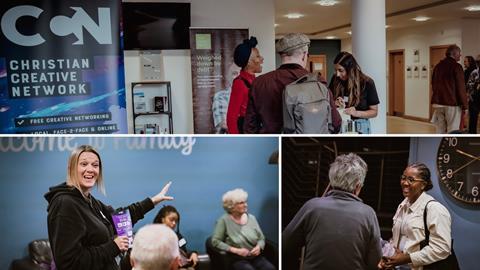
TDF: You used the word battle, so what encourages you to keep going?
JG: I think encouragement along the way, such as seeing how God has been faithful in the past, and a deep sense within me that we need this, and we need the directory. I’m 100 per cent convinced on the vision that we need to champion creativity in Church but I often doubt the vehicle and my own skills in the process. I sometimes wonder: “Am I really the right person to do it?”
A few years ago, I applied for the Lions programme, which is a Christian business entrepreneur programme – they take 15 entrepreneurs each year. Christian leaders, business men and women and charity leaders all pour into these entrepreneurs over six weekends throughout that year.
There’s a false perception that Christian art has to be lions and doves and eagles
At the end of the year, you get to pitch for their seed funding – a bit like the Dragon’s Den, but they call it the Lion’s Lair. I pitched the directory and they seed funded the building of the directory. That was a massive boost of confidence; that the vision could be seen by others too.
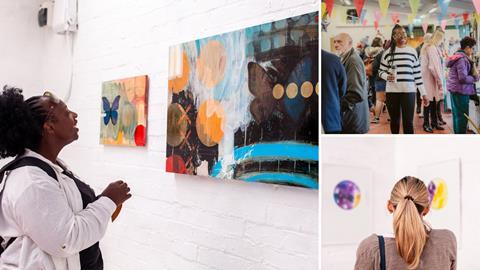
I’m “just” a mum sat in my office in Wolverhampton with a big vision. But I’m reminded of things I’ve heard such as: ‘If your dream doesn’t scare you it’s not big enough.’ My dream does scare me. But that means I have to go beyond myself; I have to rely on God. I’m just pushing doors and seeing what God opens.
I think being a 44-year-old woman helps as well. Because when you hit 40, you stop caring and waiting for permission. In my 20s I felt like I had to prove myself. In my 30s I felt like I found myself, mostly because I came to the end of myself with my children. At that stage, you realise what you’re good at but, more importantly, you realise what you’re rubbish at. Now I feel like I know who I am and I don’t really care what people think about me, like I used to. There’s real freedom in that.
With thanks to Menekşe Stewart of Cheerfully Given who was the inspiration behind the plumber analogy and a huge inspiration and champion of CCN.
For a limited time, you can try out the Christian Creative Directory for FREE. Enter the code: CCD WA and get three months of free access. christiancreativedirectory.com















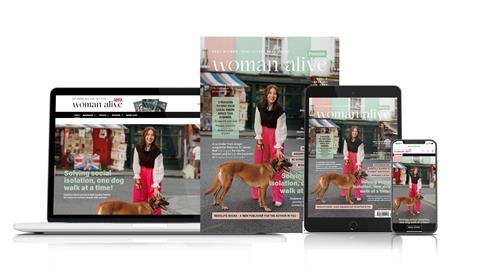
















No comments yet